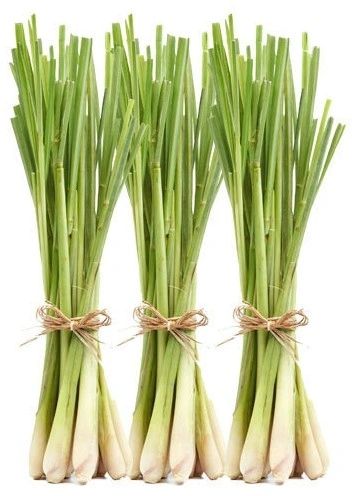Purenaissance
LEMON GRASS OIL/10 ml
LEMON GRASS OIL/10 ml
Couldn't load pickup availability
In Algeria, rose-scented geranium and lemon grass are used for the treatment of bacterial and fungal infections, and stomachache and toothache, respectively. Cymbopogon citratus (Poaceae family), commonly known as lemon grass, is a perennial tropical grass with thin, long leaves and is one of the main medicinal and aromatic plants cultivated in Algeria. It also cultivated mostly for its essential oil (EO) in tropical and subtropical regions of Asia, South America, and Africa. Product description: Lemon grass oil: In Algeria, rose-scented geranium and lemon grass are used for the treatment of bacterial and fungal infections, and stomachache and toothache, respectively. Cymbopogon citratus (Poaceae family), commonly known as lemon grass, is a perennial tropical grass with thin, long leaves and is one of the main medicinal and aromatic plants cultivated in Algeria. It also cultivated mostly for its essential oil (EO) in tropical and subtropical regions of Asia, South America, and Africa1. Appearance: Liquid2 Color: Pale yellow to yellow clear liquid.2 Odor: Fresh, lemony, earthy.3 Storage conditions: Store in cool, dry place in tightly sealed containers, protected from heat and light2 Botanic Family: Poaceae1 Organ: Grass3 Processing Method: Steam distilled3 Type: 100% natural Origin: Algeria More Info Chemical composition: Geranial, Neral, B-Myrcene, Geraniol, Limonene oxide3 Benefit: Lemongrass is versatile, and its uses range from cooking to cosmetics, to cleaning products, to medicines. Lemongrass essential oil can be used for treating muscle pain, acne, sore throats, and headaches. It is also one of the best natural repellents against insects such as mosquitoes, ticks, lice, and fleas.4 Application Tips: ü Sleep Aid and Stress Reducer4 Lemongrass essential oil is one of the best ways of relieving sleep disorders such as insomnia. Its properties also allow it to alleviate stress and anxiety, which is often attributed to the delicate yet calming aroma of the oil. Lemongrass essential oil also has sedative properties that can help improve the overall quality of sleep. One of the best ways to use the oil to alleviate stress and anxiety is to use it in an oil burner or reed diffuser, allowing sufficient amounts of the aroma to be released and providing a feeling of serenity and relaxation. ü Muscle relaxant 4 Lemongrass oil can also act as a muscle relaxant, providing relief from a backache, muscle spasms, cramps, and everyday aches and pains. For use as a muscle relaxant, dilute pure lemongrass essential oil with the carrier oil of choice (jojoba, coconut, almond) and massage into the affected area. ü Against cellulite5 For adults and teenagers. Dermally, 2 drops of Lemongrass in 8 drops of vegetable oil to apply on the most affected areas (thighs, hips, buttocks) by massaging and letting the oils penetrate well. Apply morning and evening for 3 weeks. Take a break of one week and resume 3 weeks if necessary. Precaution of use (or MSDS): As a general rule, lemongrass essential oil is seen as safe for the majority of people when used topically. It is not recommended to ingest lemongrass essential oil, but rather should only be used topically or in aromatherapy.4 The essential oil should always be diluted with a carrier oil to reduce the risk of skin irritation. If using the oil on the scalp, avoid using excess amounts to prevent runoff into the eyes. In the case that this does occur, rinse the eyes with cold water for at least five minutes and seek medical attention.4 Warning! Lemongrass essential oil is reserved for adults and teenagers. Pregnant women older than three months may use this diluted dermal essential oil, on medical advice.5 Note: It is recommended to test the essential oil before use (two drops in the inner skin of the elbow for at least 24 hours to check that there is no reaction).5 1Source: Lemon grass (Cymbopogon citratus) essential oil as a potent anti-inflammatory and antifungal drugs ; Mohamed Nadjib Boukhatem1 *, Mohamed Amine Ferhat2 , Abdelkrim Kameli3 , Fairouz Saidi1 and Hadjer Tchoketch Kebir1 ; 1- Département de Biologie et Physiologie Cellulaire, Faculté des Sciences de la Nature et de la Vie, Université de Blida 1, Blida, Algeria; 2- Laboratoire de Recherche sur les Produits Bioactifs et Valorisation de la Biomasse, Département de Chimie, Ecole Normale Supérieure de Kouba, Alger, Algeria; 3- Laboratoire Eco-Physiologie Végétale, Département des Sciences Naturelles, Ecole Normale Supérieure de Kouba, Alger, Algeria ; Libyan Journal of Medicine. (2013) 2Source: http://www.thegoodscentscompany.com/data/es1025531.html 3Source: https://www.aromaweb.com/essential-oils/lemongrass-oil.asp 4Source: https://monq.com/eo/essential-oils/lemongrass/ 5Source: https://www.compagnie-des-sens.fr/huile-essentielle-lemongrass/


